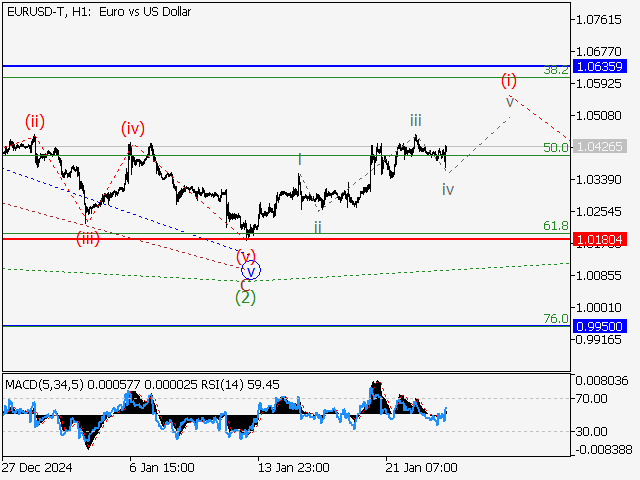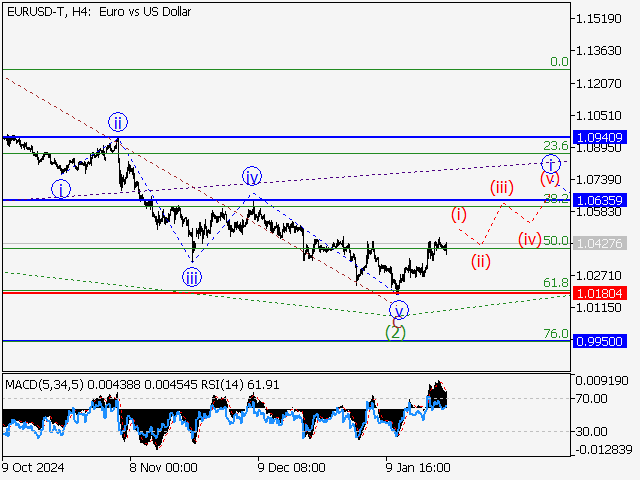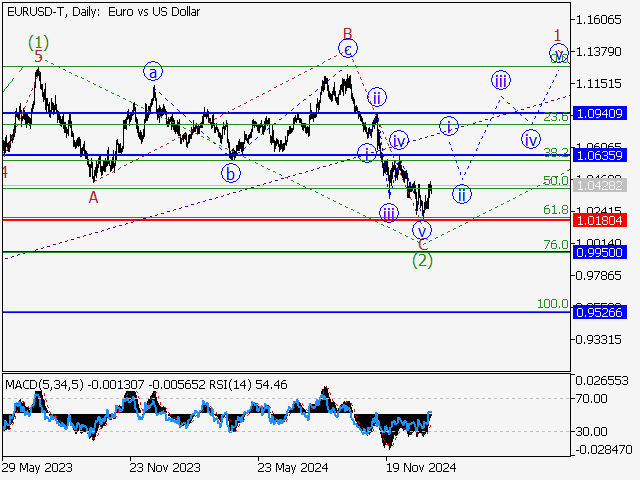
The article covers the following subjects:
Major Takeaways
- Main scenario: Consider long positions from corrections above the level of 1.0180 with a target of 1.0635 – 1.0940. A buy signal: the price holds above 1.0180. Stop Loss: below 1.0140, Take Profit: 1.0635 – 1.0940.
- Alternative scenario: Breakout and consolidation below the level of 1.0180 will allow the pair to continue declining to the levels of 0.9950 – 0.9526. A sell signal: the level of 1.0180 is broken to the downside. Stop Loss: above 1.0220, Take Profit: 0.9950 – 0.9526.
Main Scenario
Consider long positions from corrections above the level of 1.0180 with a target of 1.0635 – 1.0940.
Alternative Scenario
Breakdown and consolidation below a level of 1.0180 will allow the pair to continue declining to the levels 0.9950 – 0.9526.
Analysis
The ascending first wave of the larger degree (1) has formed on the daily chart, and the bearish correction appears to have completed as the second wave (2). Wave С of (2) appears to have formed on the H4 time frame, with the fifth wave of smaller degree v of C completed as its part. The third wave of larger degree (3) has likely started developing on the H1 time frame, with the first counter-trend wave of smaller degree (i) of i of 1 of (3) unfolding within. If the presumption is correct, the EUR/USD pair will continue to rise to 1.0635 – 1.0940. The level of 1.0180 is critical in this scenario. Its breakout will allow the pair to continue falling to the levels of 0.9950 – 0.9526.
This forecast is based on the Elliott Wave Theory. When developing trading strategies, it is essential to consider fundamental factors, as the market situation can change at any time.
Price chart of EURUSD in real time mode
The content of this article reflects the author’s opinion and does not necessarily reflect the official position of LiteFinance. The material published on this page is provided for informational purposes only and should not be considered as the provision of investment advice for the purposes of Directive 2004/39/EC.
{{value}} ( {{count}} {{title}} )
This post is originally published on LITEFINANCE.






